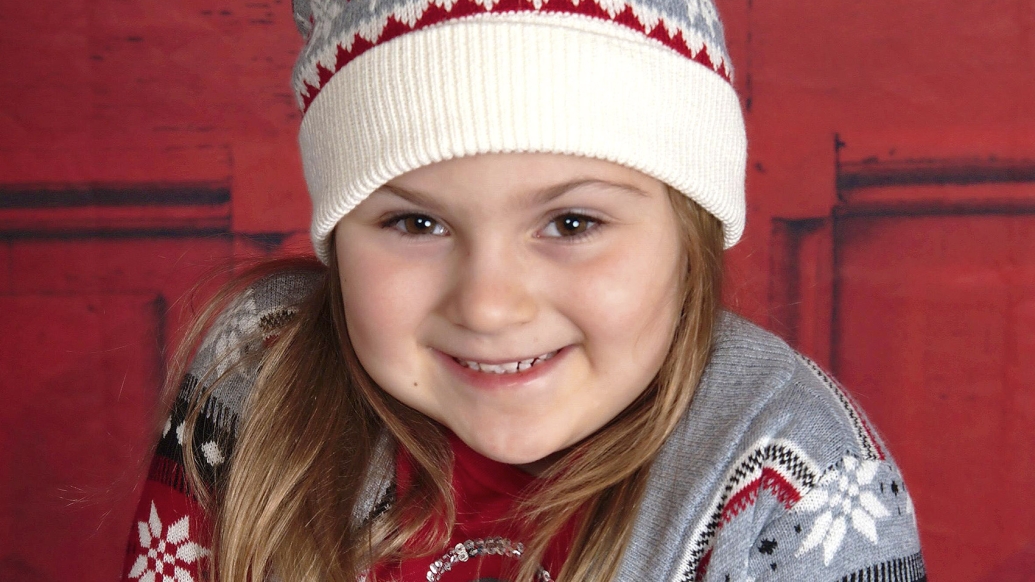Titanium “ribs” help prevent serious health issues for a young child born with severe scoliosis and an abnormally small rib cage.
7:00 AM
Author |

When Nicole Summers and Bob Craft welcomed their baby girl into the world five years ago, there was no sign that little Abigail — or Abbee as she grew to be called — was anything other than the picture of perfect health.
SEE ALSO: Follow Mott on Twitter for Live Tweets from Abbee's Surgery
It wasn't until three months later that Summers and Craft learned their daughter had a serious condition known as thoracic insufficiency syndrome (TIS).
"Basically, Abbee has severe scoliosis and her chest isn't big enough," says Summers, a resident of Commerce Township, Michigan, near Northwest Detroit.
The child was born with fused and missing ribs that resulted in an asymmetrical rib cage, which can inhibit proper lung development.
The thorax is composed of the spine, rib cage and sternum. An insufficient thorax can't support normal breathing or lung growth.
Adds Summers: "If your lungs don't have room to expand, you can imagine how that will affect a child's breathing as she grows."
To further complicate matters, Abbee had abnormally shaped vertebrae that resulted in the signature curved spine found in children with scoliosis. At just 5 months old, Abbee already had an 80-degree spinal curvature.
She soon would find hope thanks to an adjustable corrective device and multiple operations — with the 10th and latest procedure set to take place on Dec. 8.
Help close to home
Physicians at another hospital in Michigan made the initial diagnosis, but Summers wanted to make sure her daughter received the very best care available.
MORE FROM MICHIGAN: Subscribe to our weekly newsletter
A search for answers initially led her to travel to Boston, but doctors there had some surprising news: She didn't need to leave her own backyard.
They sent her home to University of Michigan C.S. Mott Children's Hospital.
"When your child needs medical care, you are willing to travel as far as you need to," says Summers. "I was pleasantly surprised we didn't end up needing to travel far at all."
For Abbee, the best course of treatment would end up being surgical implantation of a device called a VEPTR (vertical expandable prosthetic titanium rib).
"The VEPTR is an expandable titanium device that is implanted between the ribs and spine," says G. Ying Li, MD, Abbee's pediatric orthopedic surgeon. "The device helps expand the chest wall to promote lung growth and helps the spine grow straighter."
Although Li had trained in Boston before joining Mott in 2011, the VEPTR program at U-M dates back to 2006, when the U-M team implanted the first such device in the state of Michigan. The team has since performed more than 50 VEPTR procedures with strong results.

Room to grow
The VEPTR allows for gradual expansion of the rib cage and straightening of the spine throughout a person's development. The device is expanded or lengthened roughly twice a year through small incisions.
"The devices are designed to 'grow' with the child," says Li. "Most of the time, patients aren't even admitted to the hospital after the lengthening procedures."
Now 5, Abbee is preparing to undergo her latest VEPTR-related operation.
"We're going to lengthen both of her VEPTR devices," says Li, noting that Abbee will need to undergo replacement of the devices with a longer set after the current devices are maximally expanded.
The VEPTR system is designed to stay in place as long as the child's rib cage and spine are still growing, says Li. For a female, she notes, that could be until around 10 to 12 years old.
From there, Summers expects Abbee may be a candidate for spinal fusion. This procedure would definitively fuse the curved portion of her spine so that there would be no risk of further curve progression.
A team effort
The level of care experienced through the U-M pediatric orthopedic team made an impression, and the Summers family soon transferred Abbee's other specialty care to U-M physicians.
SEE ALSO: Buckeye Fan Thankful for Treatment in 'Enemy Territory' After Cardiac Arrest
Some patients with TIS are born with only one kidney. In Abbee's case, she has both kidneys but one is positioned lower than normal.
"We see U-M pediatric nephrologists regularly to monitor her abnormal kidney's location and function," Summers says. "Ultimately, she may need to have it removed, but we're monitored closely by the pediatric nephrology team to keep tabs on that."
Abbee also does physical therapy and sees pediatric physical medicine and rehabilitation physicians through U-M.
"We feel confident that our orthopedic surgeons, nephrologists and therapists are working together," Summers says. "We know they're taking good care of us."
Dancing into the future
Trips to the operating room haven't slowed Abbee down in the slightest.
"She was playing T-ball the day after her last expansion procedure," says Summers. "It was their last practice and she wasn't about to miss the celebratory ice cream."
Abbee also swims with a proficiency level beyond her age group and is an avid dancer enrolled in tap, ballet and advanced hip-hop classes.
Such physical activity is not only healthful but key to her development.
"Dr. Li has always encouraged us to let Abbee's body set her limits, and so far her body hasn't set too many limits for us," says Summers. "The only activity that's really out of bounds for us is gymnastics due to the way it requires the spine to move and flex, but Abbee's busy enough that she's not missing gymnastics at all."

Explore a variety of health care news & stories by visiting the Health Lab home page for more articles.

Department of Communication at Michigan Medicine
Want top health & research news weekly? Sign up for Health Lab’s newsletters today!





